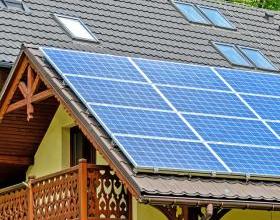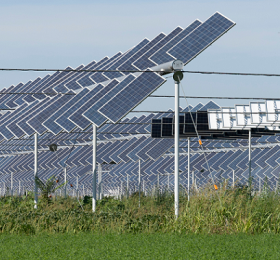"Last quarter the electricity bill increased by 20%, next quarter it increased by 40%, these things must be said, we have a duty to face them". The Minister of Ecological Transition Roberto Cingolani announced in Genoa during a conference organized by the CGIL.
And as we expected, starting from 1 October, electricity and gas bills increased by 29.8% and 14.4% respectively. Price increases that, without government intervention of around 3 billion euros, would have been even higher (over 45% for electricity and over 30% for gas).
In fact, on the day on which the decree for the cutting of electricity and gas bills approved by the Council of Ministers last week was published in the Official Gazette and assigned in the first reading to the Senate, the ARERA announced the update for the market protected valid for the fourth quarter of the year, with the increases governed by the government provision. The intervention of the Arera was able to temporarily cancel the general system charges in the bill and enhanced the social bonus for families in difficulty, allowing to cushion the impact on 29 million families and 6 million micro-enterprises.
For over 3 million households entitled to discount bonuses for electricity and for 2.5 million benefiting from the gas bonus, according to the ISEE, the tariff increases were substantially eliminated by the decree.
The over 3 billion euros allocated by the government were allocated to contain the bills of households and micro-enterprises, allocating 2.5 billion euros to the elimination of general system costs for the next quarter and approximately 500 million to the enhancement of bonuses.
How do the changes translate into expenses?
For electricity in 2021, the annual expenditure for the typical family will be around 631 euros, with a variation of + 30% compared to 2020 (corresponding to an increase of around 145 euros on an annual basis), says Arera by calculating the effects final payments in the bill of the increases.
The annual expenditure of the typical family for the gas bill in 2021, on the other hand, will be approximately 1,130 euros, with a variation of approximately + 15% compared to 2020 (corresponding to an increase of approximately 155 euros on an annual basis).
However, according to a study by the National Consumers Union, the increases for a typical family mean spending on an annual basis (not, therefore, according to the rolling year, but from 1 October 2021 to 30 September 2022, assuming constant prices ), 184 euros more for electricity and 171 euros for gas. A higher total cost of € 355 and no more than 300 as foreseen by the Arera.
Are the reasons for the increases justified?
The increases, to be reported at international level, are linked to the strong growth trend of the prices of the main energy raw materials; in particular, European gas prices grew by more than 80% in the third quarter of 2021 compared to the second, with peaks in wholesale markets of over 70 € / MWh in the second half of September (against about 20 € / MWh at the beginning of the year).
The rise in gas prices has a simple reason. While the pandemic is eradicated (at least in rich countries), the world economy is bouncing back. Companies are back to work at full capacity, and energy demand soars. Therefore, the cost of gas, the main source of electricity, increases.
Then there is the other element, the increase in the price of CO2. And this has to do with the need to decarbonise the economy, to fight the climate crisis. Companies that produce carbon dioxide (the main greenhouse gas), including energy companies, in the EU have to pay for this by buying emission allowances in the European Ets system. The price of these allowances is gradually increased to push companies to decarbonise. But this also leads to an increase in production costs, and therefore in the tariffs on the bill. We take into consideration that since the end of August this year, it has stood at over 60 € / tCO2, very alarming figures if we compare that in September 2020 CO2 was worth about 28 € / tCO2.





